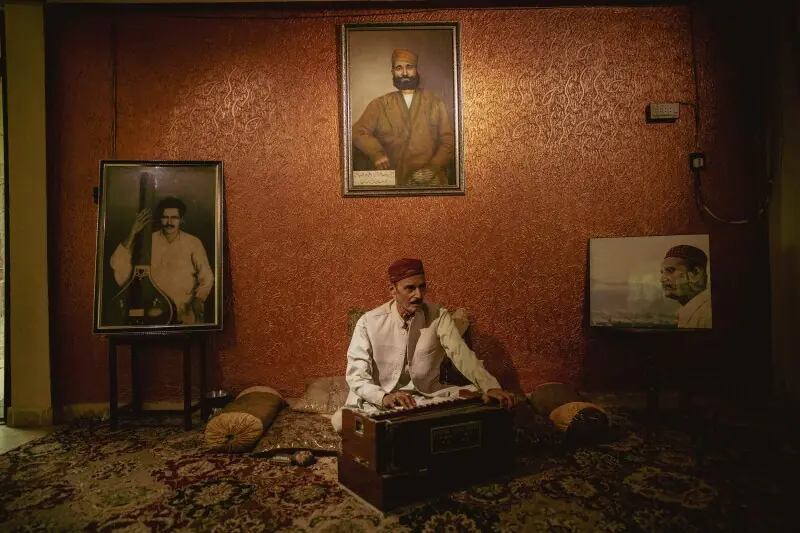Inspired by nature, Austrian, Pakistani musicians perform ‘modern sounds’
ISLAMABAD: The MakroPHONIA concert on Friday featured unusual music that symbolised hope and the love of small things.
The macro-phonic sounds and images in this instrumental concert by Austrian and Pakistani musicians, traced music that once used to be independent of writing, when the audible dominated the visible, and laws and techniques held acoustic authority.
The hour-long concert was organised by the Austrian embassy at Lok Virsa, during which two Austrian composers Renald Deppe on the saxophone and the clarinet, and Michael Bruckner on his beautiful Gretsch White Falcon electric guitar mixed compositions, concept and improvisation to produce sounds drawn from nature.
The compositions were inspired by drawings by Mr Deppe, and Mr Bruckner’s macro-photography of insects and their secret lives, said Austrian Ambassador to Pakistan Brigitta Blaha while she introduced the troupe to her guests.
MakroPHONIA is a project by Mr Deppe and Mr Bruckner alongside Pakistani musicians, where visual micro-structures of everyday living environments become the compositional substance of contemporary soundscapes.
MakroPHONIA takes up the challenge of depicting very subtle structures, and rendering them visible and audible, “magnified” through various sorts of compositions.
“The ink graphics and macro-photographs the pieces are based on work out details, which make us feel the natural vibrations of creatures and things. The connection between seeing, feeling and hearing is directly addressed by this,” said Austrian composer Renald Deppe.
According to the artist, Pakistani instruments play an important role in this transformation from image to sound with their microtonal nuances – the Pakistani flute, tabla and twenty-stringed sitar together with the guitar, cello, drums, saxophone and clarinet opened up a wide spectrum of sound which, similar to natural processes, allowed for subtle differentiations as well as harsh contours and disruptions.
“MakroPHONIA strives to enhance personal encounters, which, through playing music together address deeper layers of our existence and thus reveal possibilities of living and working together,” said Mr Deppe. He said the compositions were not fusion music but modern sounds.
Other band members included Valentin Duit on the drums and Elisabeth Naske on the cello. They were accompanied by Ustad Nafees Ahmad on the sitar, Ustad Salamat Hussein on the flute and Ustad Bashir Khan on the tabla, who performed with their Austrian counterparts in a two-week annual musical event in Austria.
Originally published in Dawn, March 26th, 2016










Comments